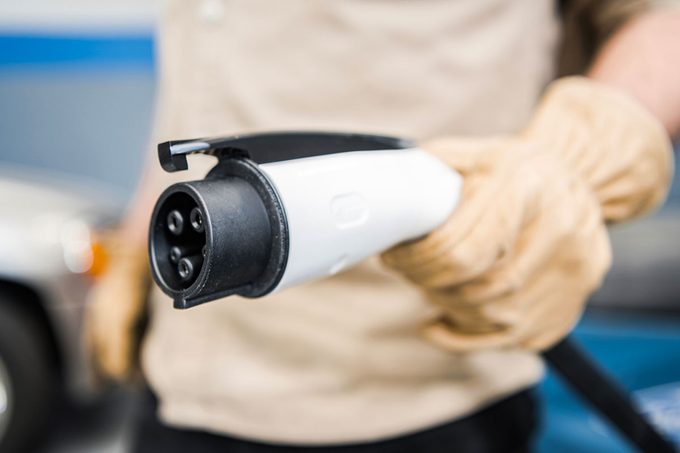If you're curious about electric cars, you've probably wondered, "Do electric cars have catalytic converters?" Learn the answer here.

Do Electric Cars Have Catalytic Converters?

With over 17 million electric cars sold worldwide in 2022, compared to just 120,000 a decade earlier, folks naturally have some questions about electric vehicles.
“Many people are still under the assumption that EVs have the same components as a traditional car, but the reality is they’re much less complicated under the hood: no oil changes, no exhaust,” says Alex Black of EpicVIN.
One common question, specifically is whether EVs have catalytic converters. The quick answer is no, they don’t. Because they don’t burn gasoline or diesel, there is no exhaust, and thus no need to air pollutants from the exhaust.
Here’s what else to know about catalytic converters and electric vehicles
What’s a Catalytic Converter?

Invented in France in the late 1800s, catalytic converters are devices designed to make combustion reactions cleaner and less toxic. Today, catalytic converters are most often installed on cars to reduce the toxicity of emissions. They’re also used in buses, trains, trucks and occasionally kerosene heaters.
They work by directing toxic emissions from a combustion reaction through a chamber called a catalyst. Once inside this chamber, the molecules of unwanted gas are broken up into less dangerous vapors, like steam. Refined and updated over the years, catalytic converters became a mainstay in American vehicles in 1975 when new the U.S. Environmental Protection Agency introduced stricter emissions laws.
Do Electric Cars Have Catalytic Converters?
No, they don’t. Since electric cars don’t have combustion engines, they don’t produce any emissions. That’s why they don’t have or need catalytic converters. Hybrid cars—that use both gas and electricity—do have them, but a fully electric vehicle doesn’t need one.
One reason EV technology is growing so quickly in popularity is that the maintenance and emissions factors are preferable. Electric cars also circumvent the need for oil and filter changes, as well as other routine maintenance required by traditional gas-burning cars. This makes a great option for plenty of people across the country—and you might be one of them!
FAQ
How can I keep my catalytic convertor from being stolen?
Park your car in a safe place at night, such as a well-lit area or your garage. You can also install a car alarm that detects movement, or have a catalytic converter lock or steel plate installed, though those can be expensive.
What should I do if my catalytic convertor is stolen?
Call the police to file a report, then contact your insurance company to see if they’ll cover the cost of a new one.
“If your converter is stolen, you should not run or drive the vehicle,” says Chris “Moose” Pyle, a JustAnswer master certified mechanic. “It needs to be repaired DIY or towed to a shop to get the exhaust system repaired.”
About the Experts
- Chris “Moose” Pyle is a master-certified technician with 20-plus years of automotive experience, and an auto expert on JustAnswer, the expert on-demand platform.
- Alex Black is chief marketing officer at EpicVIN. He has been car expert for more than 15 years, working at car auctions, vehicle history providers and more.




















